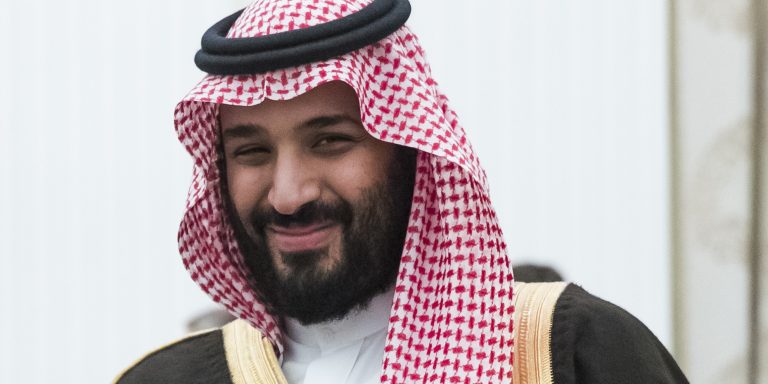INTELBRIEF
November 28, 2017
TSC IntelBrief: All the Wrong Moves: Saudi Foreign Policy

• Efforts by Saudi Arabia to counter Iranian influence in the Middle East are having the opposite effect.
• Saudi insistence in making every regional issue about opposing Iran has led to many middle-class Iranians becoming increasingly nationalist and opposed to both Washington and Riyadh.
• While outwardly committed to fighting terrorism, Saudi Arabia’s sectarian wedge threatens to undermine its counterterrorism strategies and the credibility of the first meeting of KSA’s Islamic Military Counter Terrorism Coalition on November 26.
• Washington is acting contrary to its stated counterterrorism strategy by aligning itself with one side in a sectarian battle.
Despite having an essentially blank check from the White House when it comes to Iran, Saudi Arabia has not only failed to counter Tehran’s influence in the Middle East but has actually enhanced it.
Crown Prince Mohammad bin Salman’s anti-Iranian policies, as they are being played out in Yemen, have embroiled the kingdom in a geopolitical and humanitarian nightmare that has benefitted Tehran. Efforts by the Saudi-led coalition have greatly increased Iranian military support for Houthi rebels, who were considerably less aligned with Iran before the war began in 2015. The entire point of the war, from Riyadh’s point of view, was to roll back Iranian influence in Yemen; it has achieved the opposite at a horrific cost for a country at risk from both a cholera epidemic and growing starvation and famine.
Another effort to counter Iranian influence saw the spectacle of Lebanese Prime Minister Sa'ad Hariri resigning his position in a televised speech from Riyadh, only to return to Beirut on November 22 to put his resignation on hold. If Saudi Arabia’s intent was to pressure Lebanon to split from Hizbollah, it appears to have backfired completely. Many Lebanese, regardless of sectarian background, are outraged at Riyadh’s blatant attempt to manipulate their politics.
Likewise, recent announcements from Riyadh regarding counterterrorism strategies are unlikely to produce positive results. Prince Mohammad’s statements about cracking down on religious extremism and hyper-conservative religious teachings in the Kingdom are indeed promising. But by framing regional policy through the lens of countering Shi’a Iran, Saudi Arabia—and its Washington ally—are blunting what could be an extremely powerful counterterrorism tool: the renouncing of sectarianism at every level.
It is, after all, sectarianism that helped fuel the rise of the so-called Islamic State in Iraq, Yemen, and now Egypt. In all three countries, Shi’a, Sufi, and Christian communities have been relentlessly targeted by the Sunni extremists who flocked to join the group. Yet the first meeting of the Saudi-led Islamic Military Counter Terrorism Coalition excluded Iran and Qatar, states with whom Riyadh is locked in a self-defeating campaign over regional influence and control. The Gulf Cooperation Council (GCC) might have offered Saudi Arabia a strong organization to confront Iran. But by moving against Qatar, Riyadh and the United Arab Emirates (UAE) have managed to split the GCC, just when they most needed a unified front.
Saudi insistence—and apparent U.S. complicity—in making opposition to Iran the key to every regional issue is also damaging what had been improving relations with pro-Western Iranians. On November 26, the New York Times reported that many middle-class Iranians are increasingly nationalist and opposed to Washington and Riyadh. Making people who might accommodate your side into dedicated adversaries is precisely the opposite of what effective geopolitics can achieve.
The sidelining of former Saudi counterterrorism (CT) chief Prince Mohammad bin Nayef has also damaged both Saudi and regional campaigns. Bin Nayef has long been considered by Middle Eastern and Western intelligence and security agencies as one of the most effective CT figures in the region and beyond. While just one of the dramatic moves by the Crown Prince to consolidate power, it has resulted in the de facto house arrest of the country’s best CT talent, a person who al-Qaeda targeted specifically because of his success against their group.
Iran’s position in the region is now stronger than it was two years ago, in almost every arena where Saudi Arabia ramped up both direct pressure and pressure-by-proxy against Tehran. Meanwhile, Washington is acting contrary to its stated counterterrorism strategy by aligning itself with one side in a sectarian battle already larger than the conflicts that brought ruin to Iraq, Syria and Yemen in this century and to Lebanon in decades past.
For tailored research and analysis, please contact: info@thesoufancenter.org
.
.